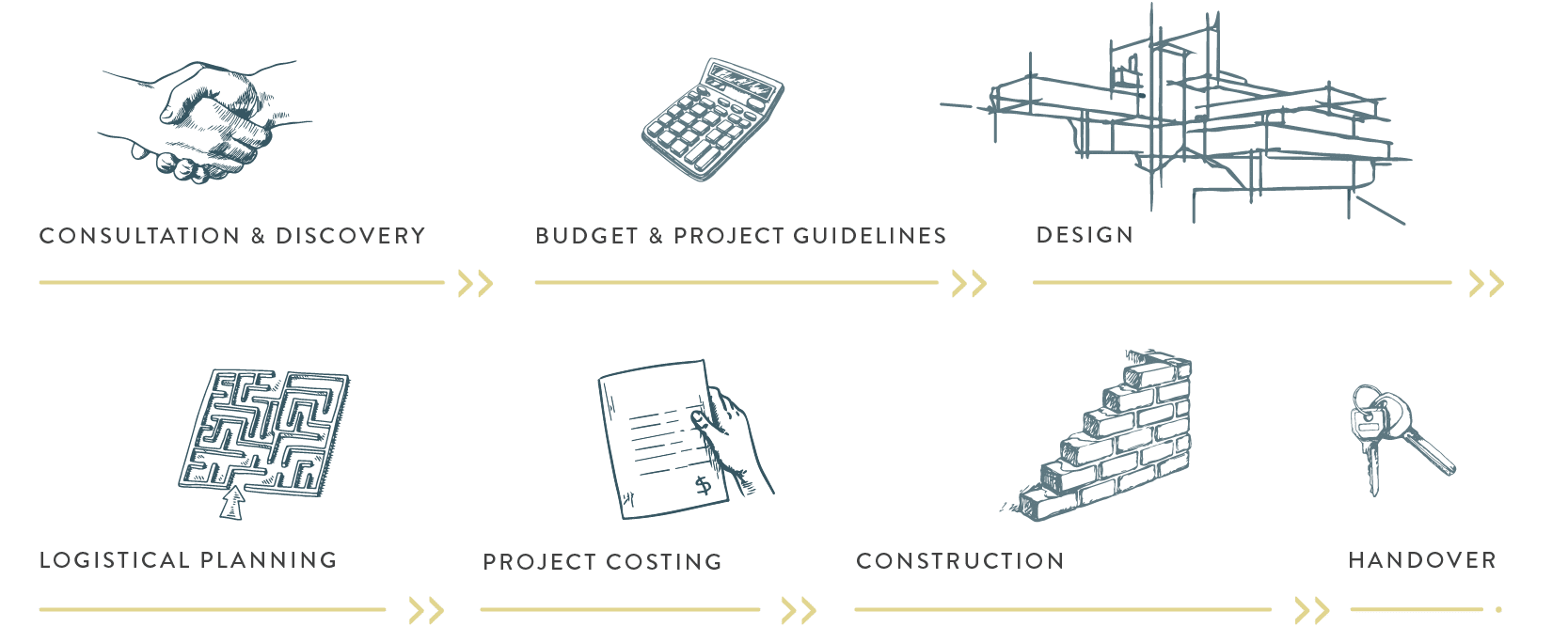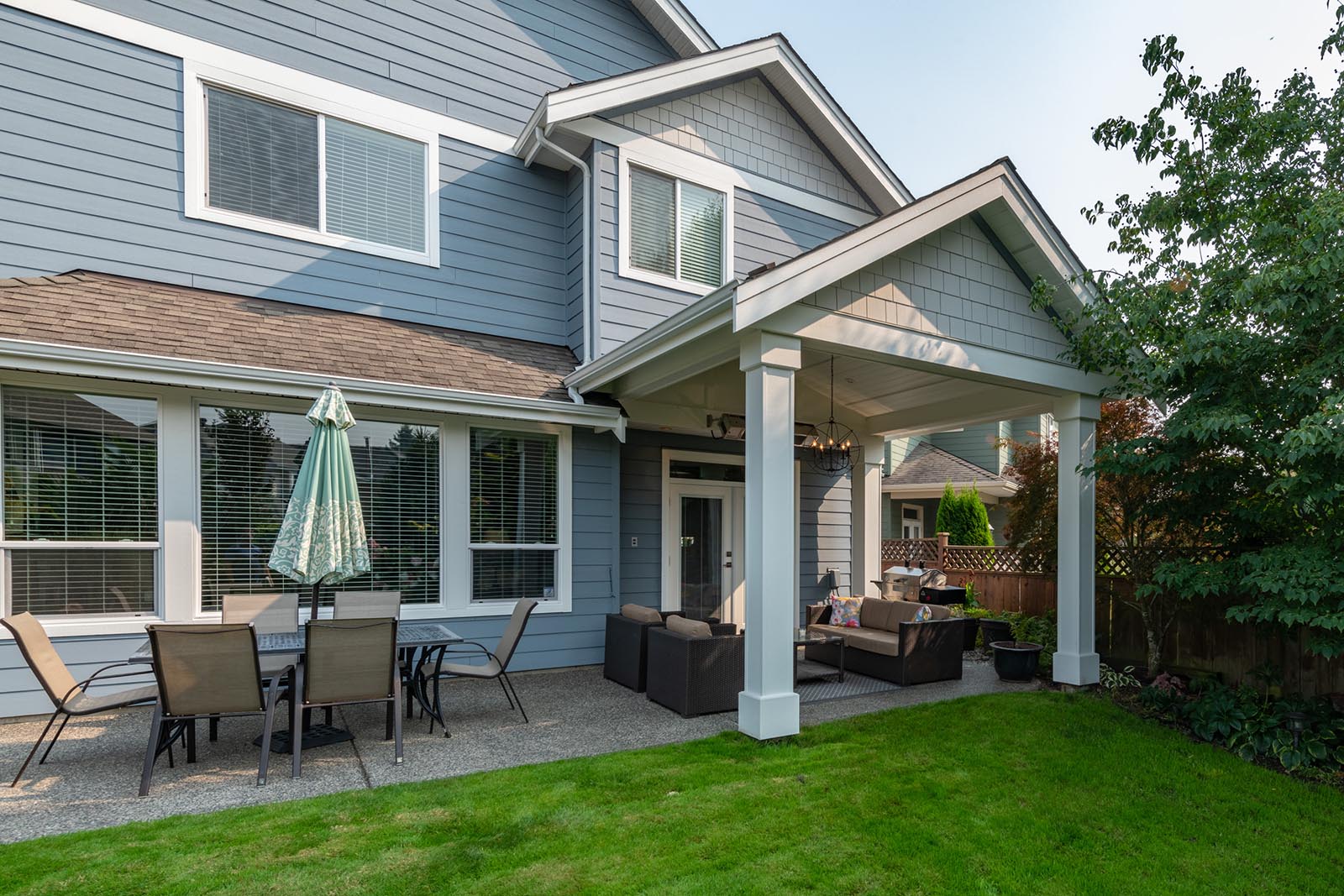Home Renovations and Additions
If you’ve fallen out of love with your home, a renovation can rekindle some excitement and put a big smile on your face when you walk in the door. Sometimes it is hard to imagine what your existing home can look like with a transformation but our team can help tier in imagination with practical and functional designs that will have you and your family loving your home.
Our customers entrust us with what is often the biggest asset that they own, their home. They choose to hire us because they are looking for a credible and experienced firm that can provide turn-key solutions from the beginning to end and provide an enjoyable experience.

Home
Renovations
Full Renovations
And Additions
A major renovation of an existing home can involve numerous elements and completely transform the house’s look and feel. This often involves changing the floor plan to suit your needs, major structural work, vaulting ceilings, adding space and virtually anything you can imagine. Make sure that if you are spending money and time on this process, you have a team that is doing to deliver the results you need.
Kitchen and Bath
Renovations
Kitchen and Bath
Kitchens are often referred to as “the heart of the home” and often where we spend a lot of time cooking, entertaining and gathering. Bathrooms are an area that we spend a lot of time whether it’s getting ready for a night out, brushing teeth before bed or relaxing in a bath at the end of a long day. Renovating your dream kitchen and bathrooms will bring a lot of joy and is also an awesome return on investment.
Outdoor
Renovations
Outdoor Living
Spaces
More and more people are looking for outdoor living spaces that connect inside and outside of the house together. This is a great way to add value to your home and create a way to use your outdoor space all year round. Functional outdoor space is often the number one thing on the priority list of our clients.
Our Process

5 Steps to a worry free renovation
Some renovations and additions, such as converting a bungalow to a two-story home, will require that you move out during construction. Other projects, such as an addition above an attached garage or a refurbished kitchen, may allow you to live with the building project, but there will be inconvenience and disruption that you’ll have to plan for.
Major projects may require the services of an architect and other professionals such as engineers and heating contractors. Their drawings are not only required to obtain building permits and other municipal approvals, but they provide the basis for your renovation contractor to price the project.
Be realistic about the time a project will take to get started and to complete; its full costs, including at least a 10 per cent contingency for changes and unexpected conditions; and the impact the project will have on the daily operation of your home and family activities.
If your project is likely to last more than a few weeks, it’s wise to discuss your project with neighbours. In addition to unavoidable noise and dirt, there will be vehicles parked on the street, disposal bins in the driveway, and plenty of truck deliveries. Most neighbours will be understanding and accommodating, especially if notified first.
Include a requirement for daily clean-up in your contract, so that your home, your street and nearby lawns don’t end up resembling a construction site.
Look for a RENOMARK renovator as your assurance that you have hired a professional who will provide high quality services.
Ask about the renovator’s experience with projects similar to yours. We recommend that you get the names of homeowners who have had equivalent work done and ask them about their experience.
It’s wise to contact a renovator first. Many RENOMARK renovators have in-house design professionals or relationships with architects and others who specialize in designing residential renovation projects. If you engage a designer first, bring a renovator into the team as early as possible so that the experience and expertise of each party can benefit your project.
At this stage your design professional or your renovator should be able to provide rough sketches satisfactory to give you confidence to proceed or to refine your plans. A preliminary sketch and a general indication of the quality of materials and workmanship you seek (the “specifications”) will allow the renovator to give you a budget estimate and an indication of the time it will take to finalize design, obtain building permits or other approvals, and complete the project.
Your RENOMARK renovator will select and manage experienced trades people for specific elements, such as electricians, plumbers, painters, or those who apply drywall, brick or stucco.
Once you are satisfied with a preliminary design, a preliminary budget and a realistic timetable, you are ready to commit to final drawings. When these are complete you are in a position to get an accurate estimate of the cost and to sign a contract with a renovator to perform the work.
If you decide to ask more than one renovator to submit bids, remember that this can be a time-consuming effort. The renovator has to be very precise in pricing materials according to the specifications… because he will be locked in to the price.
When you make your decision to hire a renovator, get it in writing. Include the precise scope of work; the exact price, including a schedule of payments; a reasonable timetable for completing the work; and any instructions for protecting parts of the house not under construction.
If there is any difference of opinion between your renovator and your design professional about procedures or materials, this is the time to resolve it. It is important to avoid any significant changes during construction because this may cause delays and extra cost.
Avoid renovators who offer to do work without a contract in an attempt to avoid payment of the HST. This type of renovator may also not be paying WorkSafeBC or carrying adequate insurance, leaving you at financial risk.
Regular communication between you and your renovator may avoid problems. During the course of a renovation or addition it is common for the homeowner to request changes or ask for additional work. These requests may affect the cost and time it takes to complete your project. It is important that you have a signed change order for all changes. Make sure that you are aware of additional costs and that these changes are added to the contract. Better still, try to think of these things during the planning stage – you don’t want to be ordering additional flowers on the wedding day!
Raise any concerns you may have without delay. Schedule meetings with your renovator when he or she can address your concerns without distraction.
Your renovator will discuss any concerns that you may have with the project or items that do not meet your expectations. But be flexible when minor changes occur that do not affect either the appearance or function of the job. Note any changes that are made as a result of such conferences, and do so in writing.
Need Help With Moving & Storage?
Need help with moving and storage during your project, let us know!
Ready To Start A New Project With Us?
From design, permitting, and construction to project delivery.












